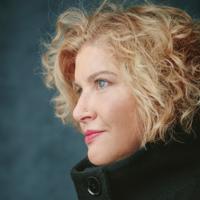Biofeedback in Vocal Pedagogy: Real-time success using mobile application technology
Thursday 15th April 2021, 5:00 PM - 7:00 PM (London Time)
Biofeedback in Vocal Pedagogy:
Real-time success using mobile application technology
Heidi Moss Erickson, B.A.Bio, B.Mus.Voice, M.Sci.
Advancements in mobile technology have revolutionized nearly every sector of our lives. Like a virtual fingerprint of our individual preferences, the seemingly endless array of mobile apps can define and enhance our interests. Music applications are a large part of this industry, and new generations of singers use their mobile devices to listen to songs, record their lessons, read, and annotate scores. Newer analysis and recording applications geared towards advanced musicians also include various forms of spectrograms for acoustic visualization.
However, spectrographic technology used by voice scientists and pedagogues has not fully crossed over into the mainstream population of students and teachers. One reason for the lack of pedagogical use is that acoustic computer software has been geared primarily towards research and academic-oriented pursuits. Acoustic software can be complicated to learn and tedious to analyze. In addition, the traditional teacher/student paradigm, proven successful for centuries, is a very effective way of teaching voice. Thus, there can be resistance to introduce new forms of pedagogic analysis in an already well-functioning studio.
However, the integration of technology for targeted purposes can aid both the student and the teacher in many important ways. In most instances it leads to increased accuracy in a shorter amount of time. It also allows the student to self-check particular directives in their own individual practice. Identifying beneficial areas of biofeedback is critical in determining where these tools can have maximum effectiveness.
‘How we practice efficiently and effectively’ is fast becoming one of the holy grails in our field. Visual biofeedback not only complements all of these processes, it also enhances both the speed and the output of targeted motor coordination.
The most critical element of introducing this technology is to identify relevant pedagogical questions that can easily be solved via visual biofeedback. Ideally, these approaches would supplement traditional methods (i.e. teacher/student; auditory/ kinesthetic feedback), but allow progress to happen faster and enhance understanding of processes.
This lecture will teach the science of biofeedback, how it relates to singing, and demonstrate the value of biofeedback for specific pedagogical aims.
Sample biofeedback mobile app readout:

Heidi Moss Erickson
Heidi Moss, is a Bay Area performer, educator, and scientist. Noted for her “rich and radiant soprano” (Edward Oriz, Sacramento Bee) has performed on national and international stages...
Sorry, this is an archived short course...
We have plenty of upcoming short courses coming soon. See details of some of them below or look at the full list of short courses.


Tuesday 3rd March 2026
5:00 PM - 7:00 PM
(London Time)
Sex differences in VOICE!

Dr Richard Lissemore
This two-hour workshop, led by performer, articulatory phoneticist, and voice physiologist, Dr. Richard Lissemore, will examine in detail the role that biological sex plays in the perception and pedagogy of singing voices. We'll consider how parameters such as anatomy, physiology, articulation, resonance, and radiated acoustics influence the perceptions and pedagogical decision-making of singing teachers.

Wednesday 4th March 2026
1:00 PM - 2:00 PM
Wednesday 11th March 2026
1:00 PM - 2:00 PM
Wednesday 18th March 2026
1:00 PM - 2:00 PM
Wednesday 25th March 2026
1:00 PM - 2:00 PM
Wednesday 1st April 2026
1:00 PM - 2:00 PM
Wednesday 8th April 2026
1:00 PM - 2:00 PM
(London Time)
Learn to Coach RP and SSBE – a Certificate in Accent Coaching

Louisa Morgan
This six-week course is an opportunity to learn about both Received Pronunciation and Standard Southern British English. Rather than a course in learning how to speak RP/SSBE (there are many brilliant available courses for this already), this course is about learning how to coach it.

Thursday 5th March 2026
1:00 PM - 2:30 PM
Thursday 12th March 2026
1:00 PM - 2:30 PM
(London Time)
Acting Emotion: Perspectives from the Masters

Louisa Morgan
Stanislavski said, “our artistic emotions are, at first, as shy as wild animals and they hide in the depths of our souls.” Michael Chekhov said, our bodies should be like a “sensitive membrane, a kind of receiver and conveyor of the subtlest images, feelings, emotions and will impulses.” And Meisner said we should be “living truthfully under imaginary circumstances.” Join Louisa Morgan in this 2-part course as she explores a range of well-known acting practitioners to investigate what they believed (or believe) about emotion and how they approached it in their work. She'll compare their work to see where they align and where they diverge.
